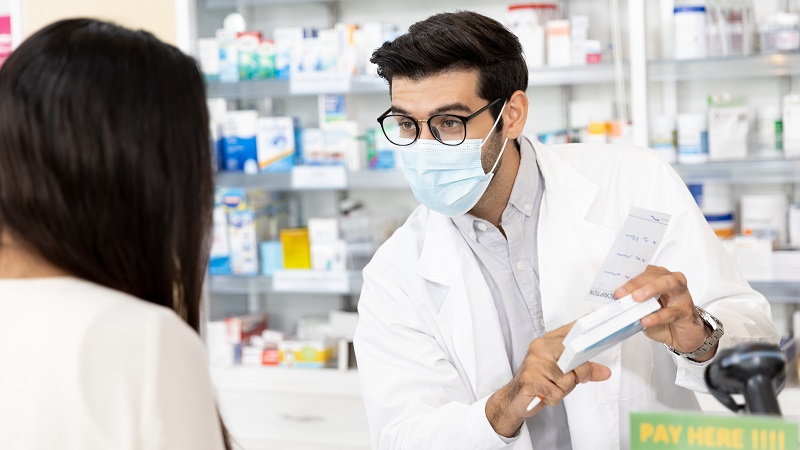Naloxone Nasal Spray is Available at All Bassett Outpatient Pharmacies Without a Prescription
August 10, 2021
Categories: Bassett News
Naloxone nasal spray is available at all Basset Healthcare Network outpatient pharmacies and many retail and community pharmacies without a prescription. Naloxone, often referred to by the brand name Narcan, is an opioid antagonist that temporarily reverses the effects of both prescription and illegal opioids. It is highly effective as an emergency treatment in cases of known or suspected opioid overdose.
Naloxone hydrochloride has been available in clinical settings for several decades but the nasal spray delivery system, approved by the Food and Drug Administration in the 2010s, requires no medical training to administer, making it a valuable tool in communities and home settings. The spray does not need to be inhaled to be absorbed into the body — it’s effective even when the person receiving it is drowsy or unconscious. It is effective in both adults and children and is safe for people who do not have opioids in their body.
“There can be a social stigma associated with opioid misuse,” explains Michele Taurisano RPh, Bassett’s network ambulatory pharmacy manager.
“We hope this will help normalize asking for naloxone. Ideally, we want patients and their caregivers to discuss concerns about opioid use and naloxone with their health care provider, but we will gladly offer naloxone without a prescription if it means possibly saving a life.”
It is estimated that 2.1 million people in the United States struggle with an opioid use disorder. In 2018, the Office of the Surgeon General began recommending that families, friends, and people personally at risk of opioid overdose keep naloxone on hand.
Recognizing & Treating an Opioid Overdose
The Centers for Disease Control and Prevention (CDC) identifies the following signs and symptoms of an opioid overdose:
- Small, constricted “pinpoint pupils.”
- Falling asleep or loss of consciousness.
- Slow, shallow breathing.
- Choking or gurgling sounds.
- Limp body.
- Pale, blue, or cold skin.
Since diagnosing an overdose can be difficult for someone who is not a medical professional, the CDC recommends that every suspected overdose be treated like an overdose by taking the following steps:
- Call 911 immediately.
- Administer naloxone, if available.
- Try to keep the person awake and breathing.
- Lay the person on their side to prevent choking.
- Stay with the person until emergency workers arrive.
Although naloxone can save a life by reducing the danger during an opioid overdose, a person experiencing an overdose still needs emergency medical attention. “Naloxone can wear off before the opioids have cleared a person’s system,” explains Taurisano. “There are also serious long-term effects of an opioid overdose that need to be monitored and addressed. Naloxone pauses symptoms to allow someone to get help, but it cannot take the place of treatment.”
Are you or someone you know struggling with opioid addiction? Contact your county’s Chemical Dependency Service: New York State HOPEline 1-877-8-HOPENY. Available 24 hours a day, 365 days a year for alcoholism, drug abuse, and problem gambling. All calls are toll-free, anonymous, and confidential.
